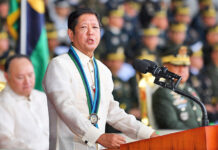Rizal Faisal
The earth is healing, albeit slowly, and experts in their fields, whether in enforcement, lawmaking, education or managing waste, are doing something.
This was shared by Evelyne Tang, a law graduate from Brunei Darussalam currently doing her pupillage, selected by the United States (US) government to participate in the Young Southeast Asian Leaders Initiative (YSEALI) Academic Fellowship 2023 Cohort for an Environmental Issues themed programme.
In an interview, Tang said that the experience of being flown across the Pacific to Hawaii to undergo her programme hosted by the East-West Center “had been truly uplifting”.
Tang said she grew fond of how the programme infused the warm embrace of Indigenous knowledge and how advocating for their inclusion at every level was made an important part of it.
“At the heart of advocating for environmental change is the people who live in it. And Indigenous peoples’ perspectives must be included in legislation and policy-making to ensure sustainable and equitable environmental solutions,” she observed.
Tang also volunteered with organisations that contributed to community-driven environmental conservation efforts. In addition, she mentioned getting to see how a company called HPOWER turned literal pieces of trash into energy.On their graduation day from being fellows to East-West Center alumni, Tang and her fellow participants visited the Lincoln Memorial.
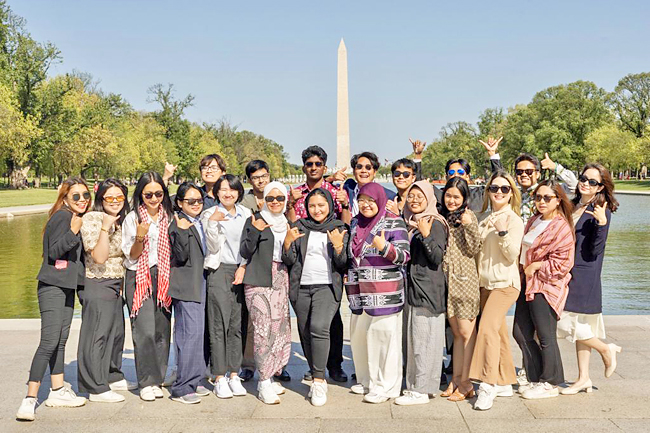
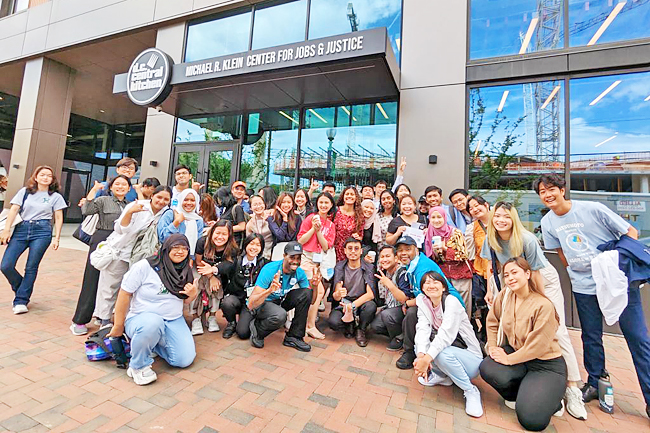
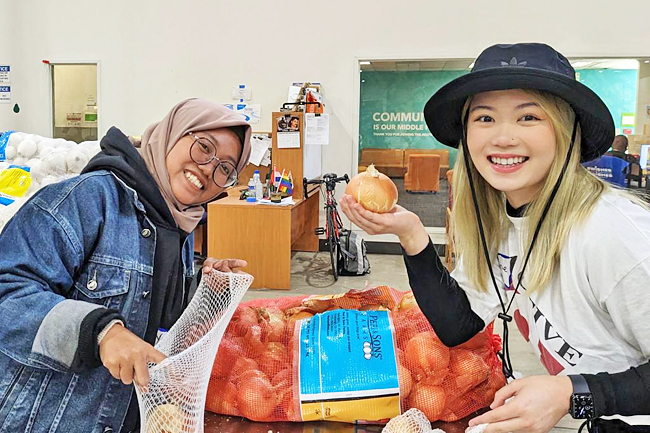
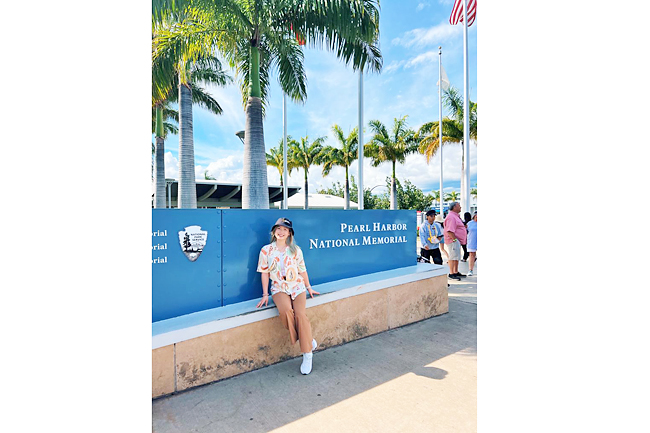
She also used her free time over a weekend to tour the Pearl Harbor Memorial with some of her fellows. “It was very surreal to read the descriptions of the men and women who died in war. It reminded me that war is something I hope we’ll never have to face again, and something, in my power, and capacity, to avoid at all costs.”
She highlighted her meeting with Hawaiian State Senator Chris Lee, whose involvement with politics took a drastic turn when he suffered a stroke at 30. According to Tang, he then started advocating for the environment much more and added that he was the first politician to pass the nation’s first carbon neutrality in Hawaii.
“He told us about the struggles of becoming a politician and how important it is to fight for what you believe in,” Tang recalled of the meeting.
The group then travelled to San Francisco, California after spending three weeks in Hawaii, where they learnt about the glamourous and not so glamourous reality of California.
While there, Tang helped out at Alameda Food Bank by sorting out the food preparations.
Another highlight was the Golden Gate Bridge, which Tang shared she was surprised when she discovered it was red in colour.
She later found out that “it was called the Golden Gate Bridge because of its association with the Golden Gate Strait, providing a lot of traffic and commerce to occur because of it. It was also inspired by the golden glow of the strait during sunset and the striking contrast it creates against the surrounding landscape”.
Meanwhile, on their first official day at the East-West Center, the group met its president, Suzanne (Suzy) Puanani Vares-Lum, who formally welcomed them there.
The group then banded up with other fellows on the programme, but from the University of Montana, in Washington DC.
The team also helped out with a soup kitchen named DC Central Kitchen, where they volunteered in preparing ingredients for cooking.
In addition, Tang and her fellows volunteered with Genki Ala Wai Project to help restore the Ala Wai Canal to its glory days.
“It used to be a very famous fishing and swimming canal, but due to pollution, it was deemed hazardous. So now the Genki project aims to create organic, bioremediation balls named ‘Genki balls’ to introduce safe bacteria that break down the sludge and clean up the canal,” explained Tang.
On her visit to the Golden Gate National Park, Tang recalled meeting US National Park Ranger Fatima Colindres who led them on a tour.
“She taught us an important lesson on promoting inclusive environmental practices, and how this park intends on being inclusive. Most signs say ‘Welcome to your park’ or ‘Our park wants to be kept clean!’ – to promote inclusivity, no matter age, gender or race. It also gives a sense of accountability to its users,” she said.
Tang also recounted a session with Dr Ryan Longman where she and her group presented their example of a “problem tree” and “theory of change”.
“This was a session with Dr Longman who helped us figure out practically, how we would contribute our piece of the puzzle into the world’s problems. It helped us rationalise, practically, how we could solve issue, and apply for future funding for the projects.”
Her favourite experience of the whole trip – the Book Circles, was conducted in the Japanese Gardens at the East-West Center.
“Fun fact: former US president Barack Obama used to run in these very same gardens as a child,” Tang shared.
There at the gardens each week, different environmental issues would be discussed openly among Tang and her peers, and sometimes invited mentors who could help theorise solutions of the future.
Tang said that following what she saw and experienced during the programme, she looks forward to more experiences when given the opportunity and asserted her participation in a future prospect.
“This has been without a doubt, the most amazing, life-changing experience, and the many friendships I’ve made will be something I hold dear for a very, very long time.”
“I’m grateful for this incredible learning opportunity and look forward to implementing solutions back home to tackle environmental challenges,” Tang concluded.










